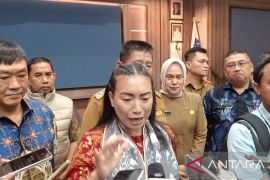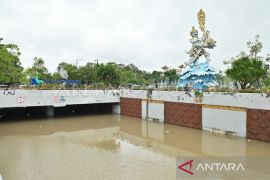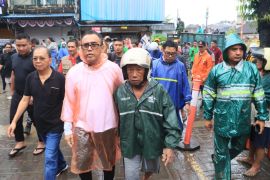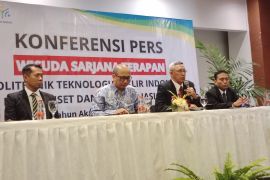Director of UNDP Indonesia Beate Trankmann meanwhile said forest management in Indonesia reflected the Indonesian government`s commitment to handling management issues in the implementation of REDD+.Lombok Barat, West Nusa Tenggara (ANTARA News) - The Indonesian government in cooperation with UNDP and UNREDD has launched an English edition comprehensive forest management index.
The launch, which is the first in Indonesia, was done at an international meeting in forestry on June 25-July 2 in Senggigi, Lombok Barat district, West Nusa Tenggara, on Wednesday.
The meeting was attended by around 150 representatives from 37 countries and preceded by a Project Grant Agreement meeting and the index launching.
The head of the Presidential Working Unit for Development Supervision and Control/REDD (reducing emission from deforestation and degradation) Task Force, Imam Santoso, said the index is an analysis on current forest management conditions and their implication on REDD+ programs.
Indonesia as a country with the world`s third biggest forest cover has taken positive steps to protect its forests.
Indonesia is also one of the countries that has committed itself to reducing green house gas emissions drastically by 26 percent by 2020, mostly caused by peat land and forest degradation.
"The report contains detailed policy recommendations to increase accountability and transparency which is key to protecting sustainable forests and peat land in Indonesia," he said.
He hoped the launch of the index could make Indonesia a reference country for implementation of REDD+ programs.
"I hope Indonesia`s experience in analyzing forests, peat land and REDD+ forest management along with several other countries could make Indonesia become a role model for implementation of forest management," he said.
Tim Clairs from UN-REDD Program said he appreciated the Indonesian government`s courage to openly admit challenges in forest management.
"The availability of comprehensive initial data is an important initial step to improve management system and structure," he said.
Director of UNDP Indonesia Beate Trankmann meanwhile said forest management in Indonesia reflected the Indonesian government`s commitment to handling management issues in the implementation of REDD+.
"This is proof that REDD+ could not work without good management. Good management is a must so that public system, institutions and laws could effectively protect forests and peat land," he said.
He said the study in the past year had been carried out through close consultations with REDD+ Task Force, the ministry of forestry and the National Development Planning Board (Bappenas).
The report was filed through intensive public consultations and with support from academics and noted experts in Indonesia.
Indonesia with support from UN-REDD Global Program is one of the four countries that has been used as a pilot project for the launching of the PGA. The other countries include Equador, Nigeria and Vietnam.
The report covers 10 provinces in Indonesia with their forests reaching half of forests in Indonesia. They are Aceh, Riau, Jambi, South Sumatra, West Kalimantan, East Kalimantan, Central Kalimantan, West Papua and Papua and two districts in each of the provinces.
The launch of the report was done less than two weeks before the implementation of moratorium on forest exploitation in Indonesia ended.
The moratorium was issued after the Indonesian government agreed with the REDD+ scheme which is supported by the Norwegian government.
The report calculates total index of forest, land and REDD+ management at 2.33 in a scale between 1 to 5.
The figure is the aggregate of average index at central levels combined with average index in 10 provinces with the biggest forest cover (2.39) and average index of 20 districts in the province (1.8).(*)
Editor: Heru Purwanto
Copyright © ANTARA 2013












